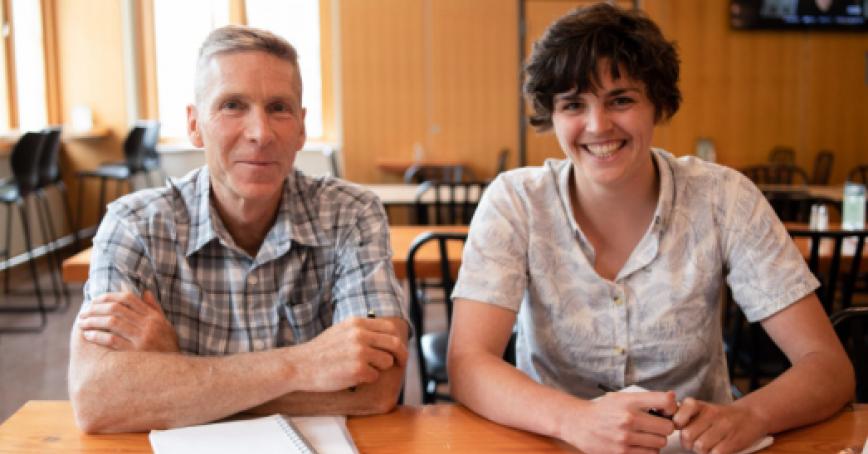Research with impact gets Showcase

How do you solve complex problems? For Dr. Brian Belcher, the Tier 1 Canada Research Chair in Sustainability Research Effectiveness (SRE) at Royal Roads University, evolving how we conduct research is a tool to help address big questions. The SRE program aims to understand how research contributes to change (impact) and to learn how research can be made more effective as a tool for change.
“I had been thinking about the challenge of demonstrating impact in an international research-for-development context for most of my career. Here at Royal Roads, which has a strong mandate for student research, and also faculty research that makes an impact on the world, we have the same kind of challenge,” says Belcher. “When the opportunity for a Research Chair came up, I thought this is really something we could focus on and do some useful research on effectiveness.”
Dr. Belcher and the SRE Program team present their work at the Royal Roads Library Showcase until September 30. Faculty, staff, students and public are invited to attend the launch on Monday, August 19 from 12 to 1 p.m. and meet the program team, ask questions, and learn about what it means to construct intentional, impactful research. Showcase is the Library’s space for promoting Royal Roads’ innovative, applicable and real-world research. Belcher urges students to view the showcase as the new academic year begins.
“I would like student researchers to think about the intentions and the design of their research. Most come to Royal Roads with a motivation to do research that will make a difference in the world, but how do they do that? As new researchers, which many are, they naturally focus on the research for knowledge creation and maybe don’t think through ‘OK, who is going to use this knowledge, how are they going to use it, and how can I organize my work so that happens more organically and effectively?’”
Research Assistant Rachel Claus says she hopes the Showcase introduces people (particularly fellow researchers) to new methods and tools they could consider using to make their work more effective.
“One of the things that really drew me to work with the program post-grad was the focus on effective research. It seemed like such a relevant gap, given my prior experience as a grad student researching in the field of sustainable development. I wanted to know if I was doing my research effectively back then, but felt unequipped to know how. I think having access to the tools we have been developing in our program would have been a huge help in thinking through the design and implementation of my project more systematically and critically.”
The work is also beginning to generate traction in the academic community, and Belcher is receiving invitations from around the world to present and speak about the characteristics of research.
“The increasing appreciation by researchers is coming. It’s the idea that you can’t just produce knowledge, but you’ve got to engage in the policy process, you’ve got to provide information and empowerment for other actors in the system if you want to help policy move in a direction that will make for more sustainable research outcomes,” he says.
Follow the Sustainability Research Effectiveness Program on Twitter @SREffectiveness and online at www.researcheffectiveness.ca.